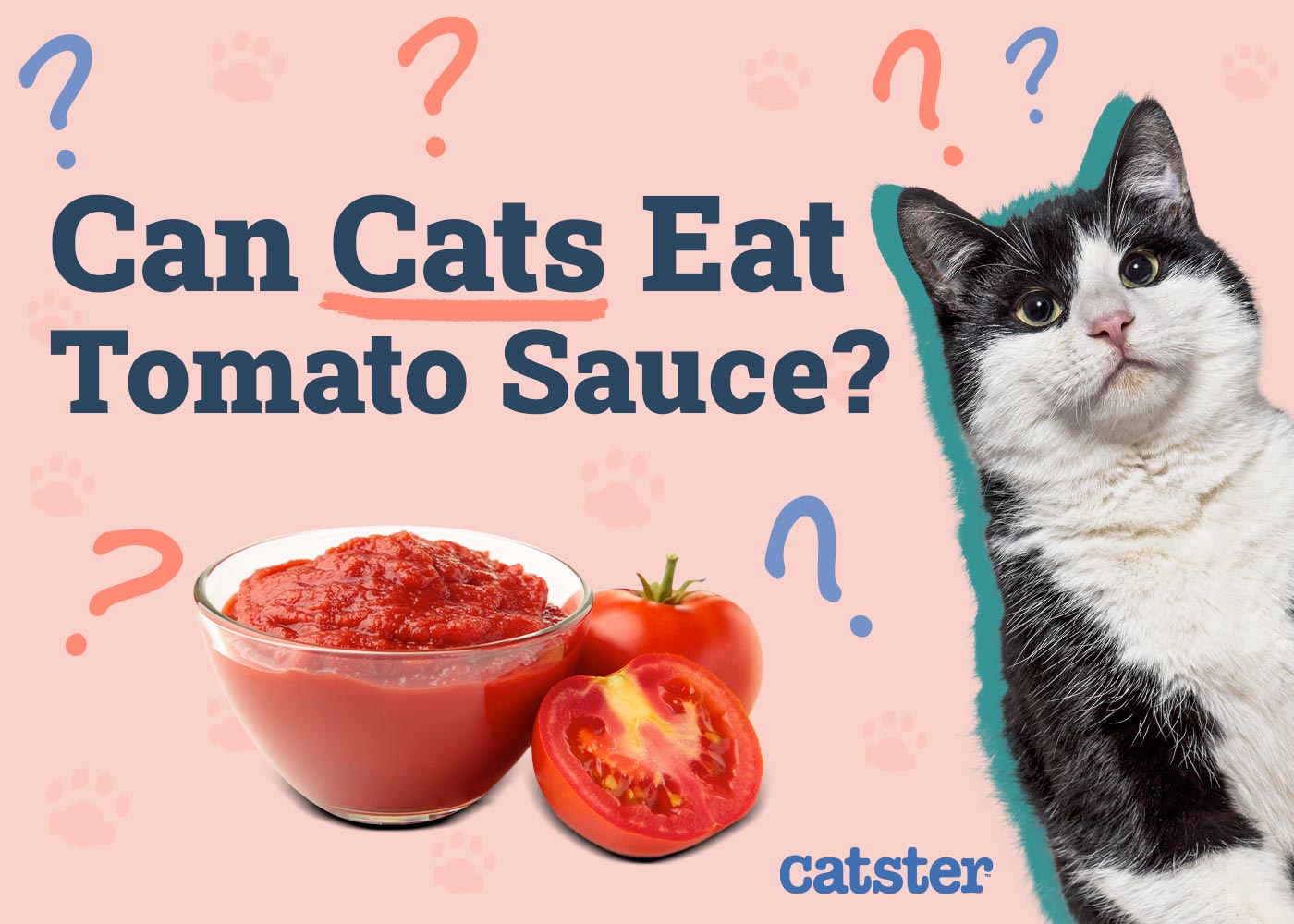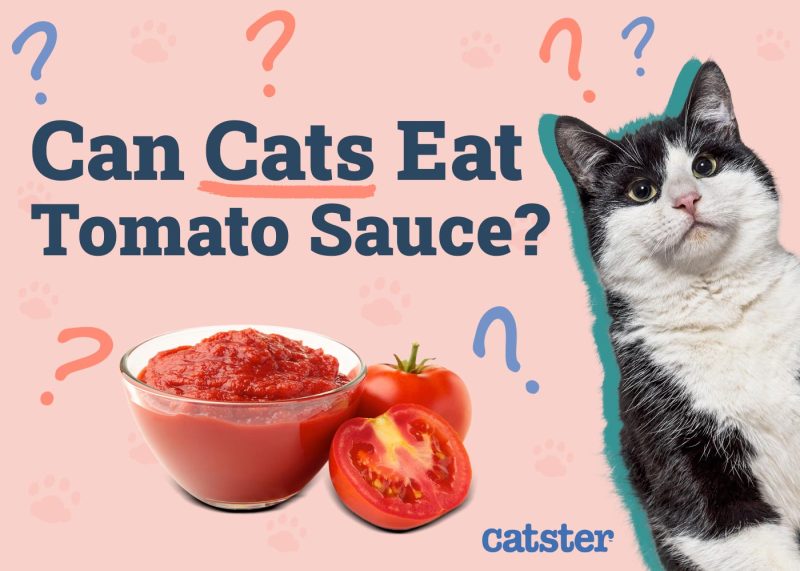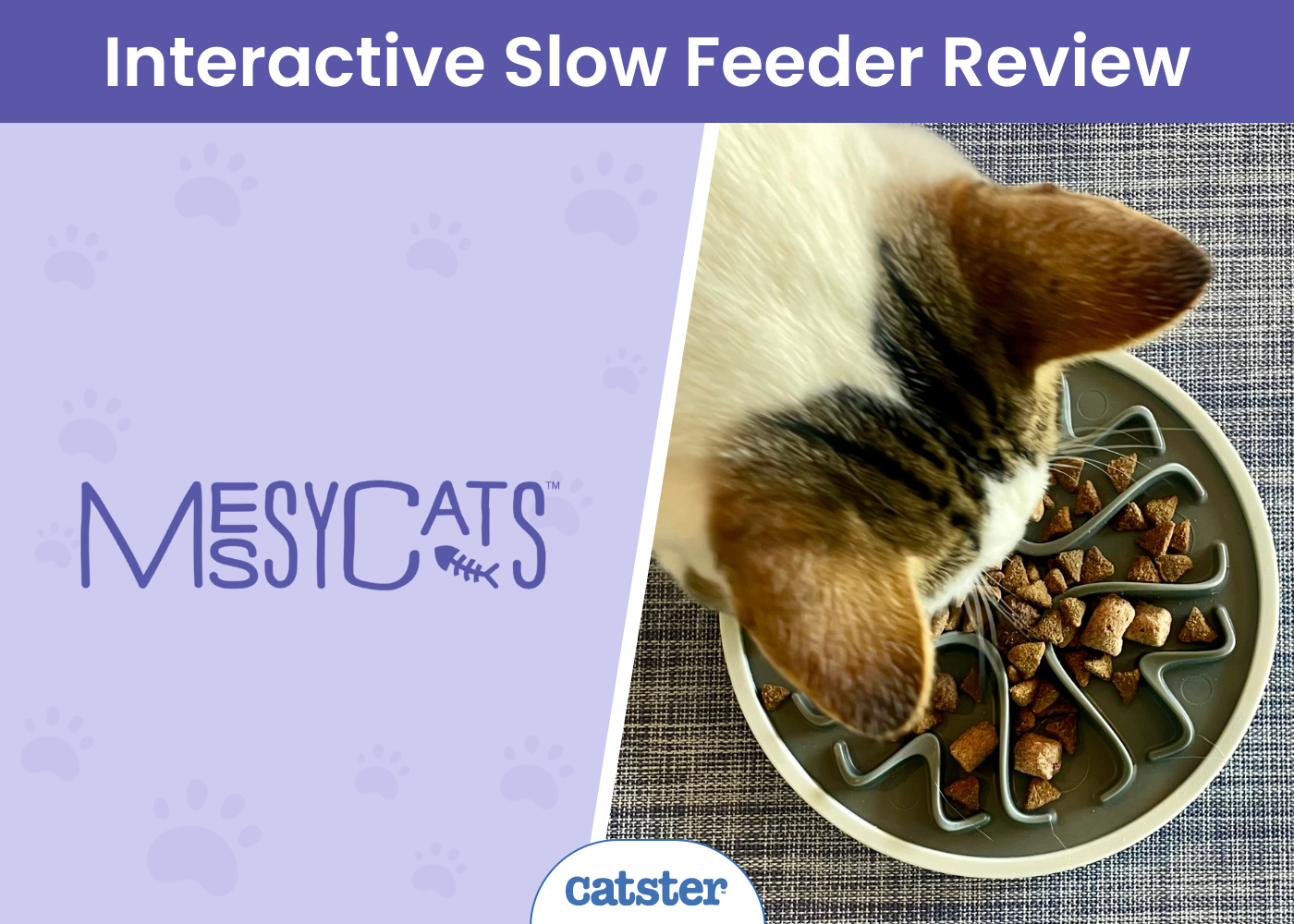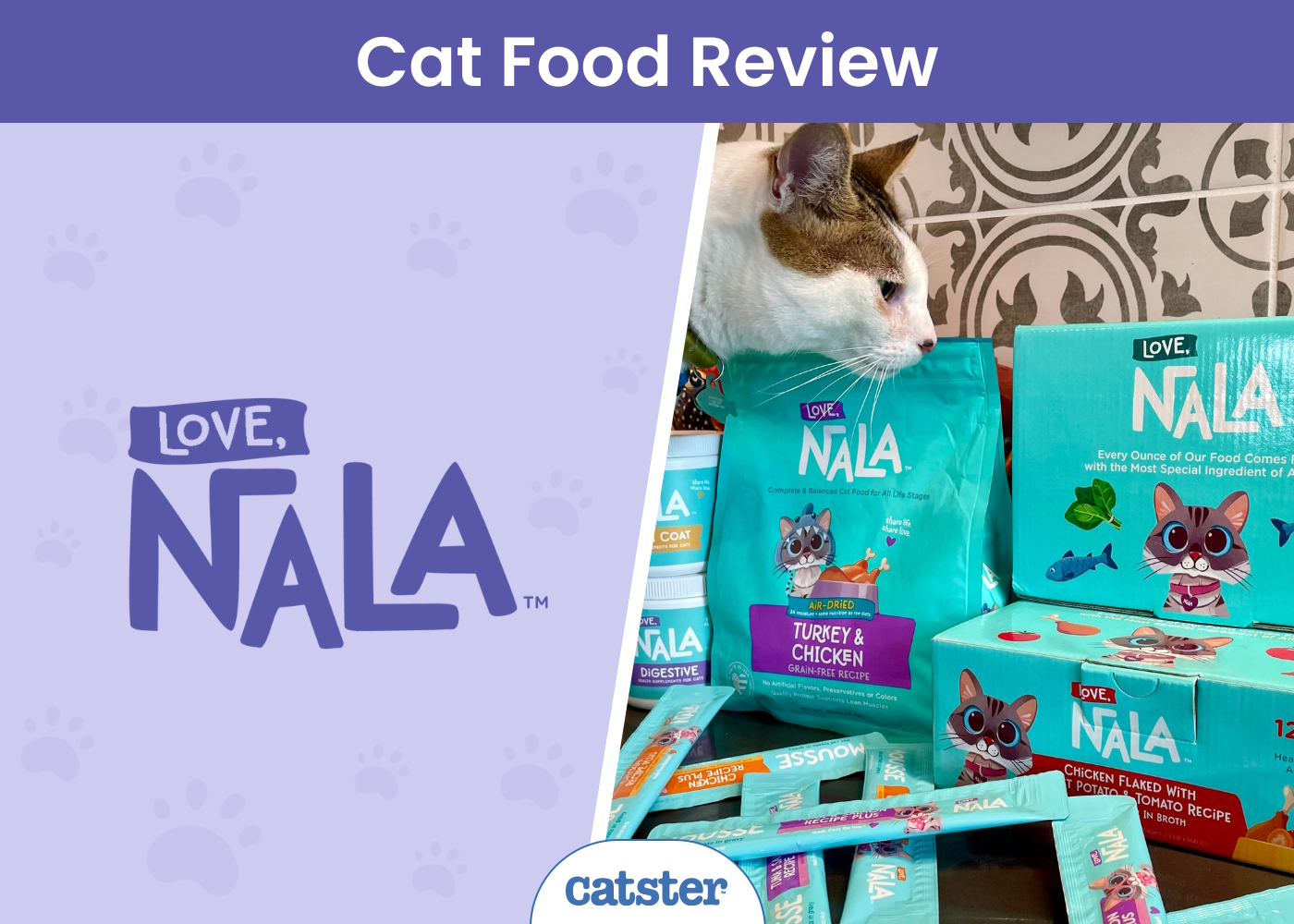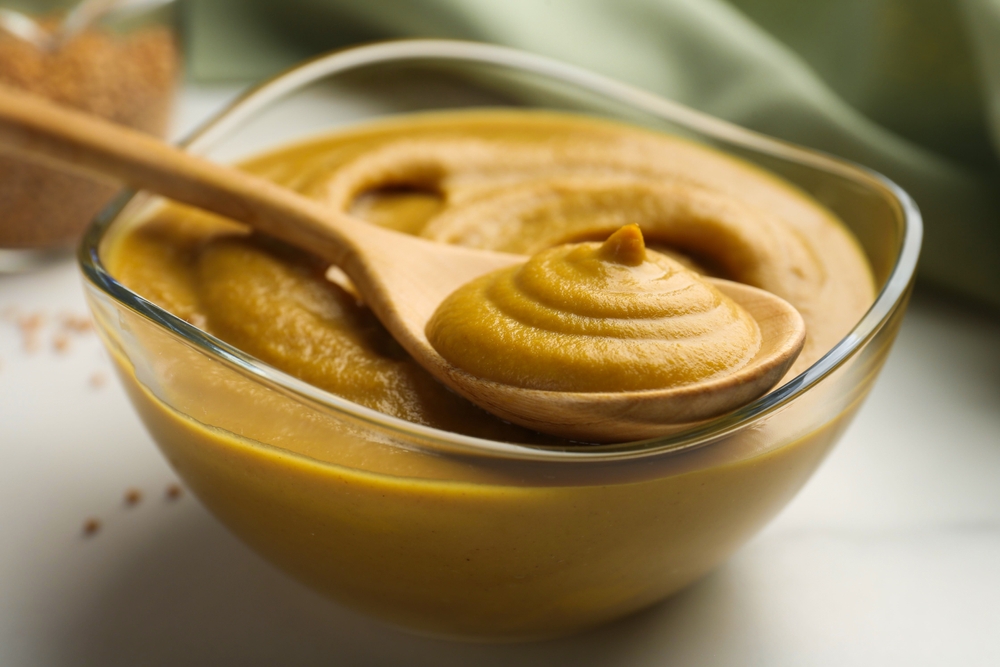Click to Skip Ahead
It’s dinner time, and you’re serving up your signature dish of spaghetti with jarred tomato sauce because who has time to make tomato sauce from scratch? A dollop of sauce accidentally hits the floor, and your cat, waiting patiently by your feet, immediately licks it up.
Now you’re thinking “Actually, can cats eat tomato sauce?” The short answer is that while ripe tomatoes are safe, many ingredients commonly found in tomato sauce are dangerous for cats.
The Healthy Tomato
The tomato contains a high concentration of the antioxidant lycopene, which has been proven to provide health benefits to people. The highest concentration of lycopene is in the tomato skin. The redder the skin, the more lycopene is present.
Ripe tomatoes are safe for cats, but the green parts of the tomato plant are toxic due to the presence of solanine and tomatine.
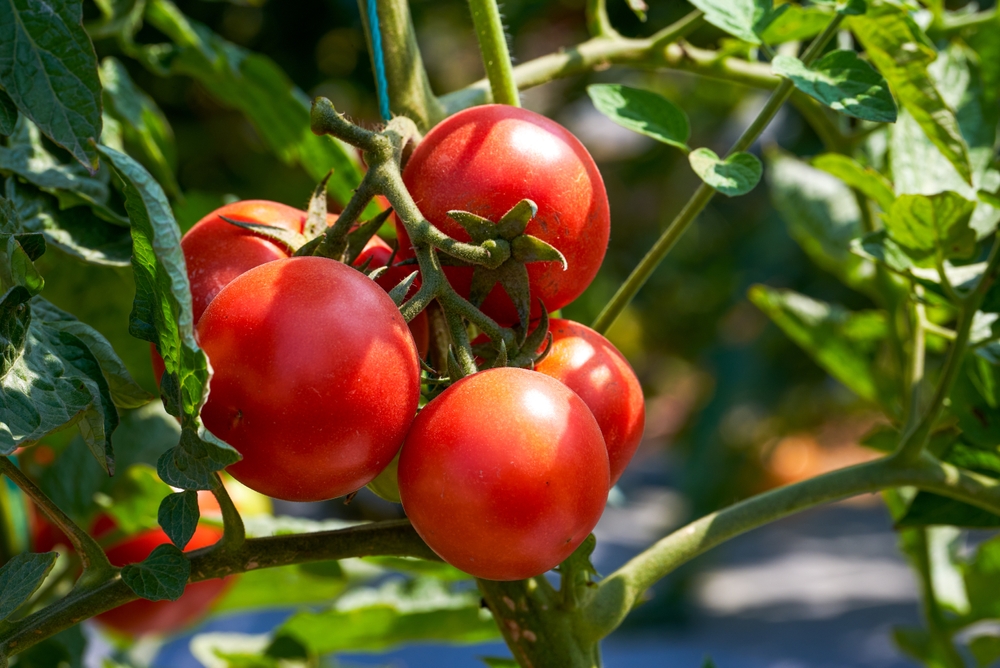
The Toxic Tomato Plant
Tomatoes are botanically classified as fruit that belongs to the Solanaceae family and are called nightshade vegetables. The tomato plant contains solanine, which can be toxic for animals if eaten in large amounts. While poisoning won’t typically result when cats eat a small amount of the tomato plant, ingestion can lead to vomiting, diarrhea, disorientation, weakness, and lethargy.
Tomatoes also contain another toxin, known as tomatine. As a toxin, tomatine produces signs which are similar to solanine.
Therefore, it is best to keep your cat away from tomato plants, but if you suspect your pet may have eaten part of a plant, you should contact your vet as soon as possible.

If you need to speak with a vet but can’t get to one, head over to PangoVet. It’s an online service where you can talk to a vet online and get the personalized advice you need for your pet — all at an affordable price!
The Tomato and Your Cat
The red, ripe tomato is the safest part of the tomato plant for your cat unless they’re allergic, which is not very common. Tomatoes do contain vitamins and minerals which might be beneficial for your cat.
- Total Calories: 2.7 kcal
- Water: 14.2 grams (g)
- Protein: 0.132 g
- Fat: 0.03 g
- Carbohydrates (total): 0.584 g
- Fiber: 0.18 g
- Calcium: 1.5 milligrams (mg)
- Potassium: 35.6 mg
- Phosphorus: 3.6 mg
- Sodium: 0.75 mg
Source: USDA
Though tomatoes also contain Vitamin C, this particular nutrient isn’t considered essential for cats. Unlike us, healthy cats can make Vitamin C on their own. Though a cat with long-term liver issues or other forms of illnesses might benefit from supplementation of Vitamin C, fruits such as tomatoes might not be the best option in such a scenario.
Because tomatoes would (and should) form a very small portion of a cat’s diet when offered to them as a conscious decision, their benefits would be extremely marginal and possibly negligible from a nutritional perspective. Though they are obligate carnivores, cats may benefit from the inclusion of some non-animal products in their diet (such as nutraceuticals).
However, the full breadth of benefits offered by tomatoes would only be ascertained after analyzing the diet as a whole. On its own, tomatoes don’t have much appeal in a cat’s diet from a nutritional standpoint. Their most prominent role in the diet might be the inclusion of additional hydration and some fiber. However, other plant-based nutraceuticals can achieve both of these benefits in better ways. For example, psyllium is a much better option for regulating intestinal water content and offering fiber.
Unless you are working closely with a veterinary nutritionist, it is recommended that you stick with a good-quality, balanced cat food that has the right amount of nutrients rather than adding human foods to supplement your diet. If you are planning on feeding your cat any of your food or you think they could benefit from supplements, always follow the advice of your vet.
While sharing human food with your cat is not always safe, we have a solution that will keep you both smiling.
We've currently got a 40% discount to share on the HUMAN-GRADE premium cat food that ranked number #1 in our reviews! CLICK HERE & use code Catster24 to SAVE 40% on Smalls cat food!
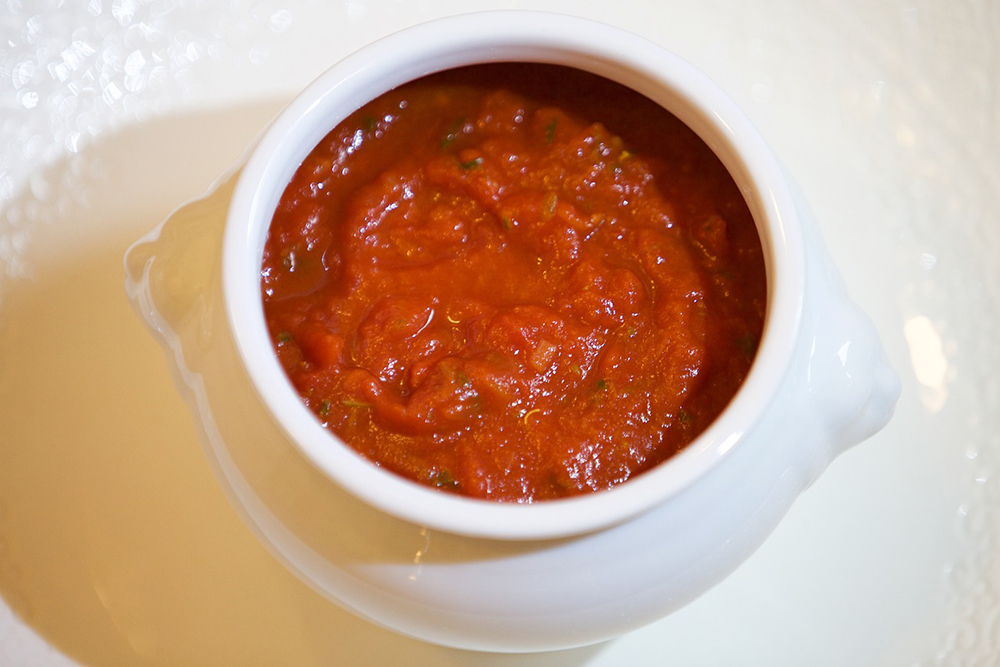
Tomato Sauce and the Cat
Now that you know more about tomatoes, let us look more specifically at whether cats can eat tomato sauce. Most red sauces have basic ingredients that are not harmful to your cat, such as ripe tomatoes, olive oil, and seasonings like basil. However, homemade and jarred tomato sauces can sometimes contain oregano, which is harmful to cats, and other dangerous ingredients for pets, such as onions and garlic, especially the powdered forms.
Both onions and garlic contain compounds that damage the red blood cells, which can lead to anemia and gastroenteritis (diarrhea, vomiting, and abdominal pain). Garlic is about 5 times more toxic than onions, and considering most tomato sauces contain garlic, it would be safer to keep your cat away from tomato sauce in general. Leeks and chives also belong to the same family as onions and garlic and should be avoided if they are in your sauce.
So, if your cat eats tomato sauce off the floor or your finger or even manages to stick their head in the pot when your back is turned, and if the sauce has onions or garlic in it, particularly in the most concentrated form (powder), these are the signs you need to watch for:
- Vomiting
- Diarrhea
- Drooling
- Abdominal pain (often indicated by a hunched posture)
- Pale gums
- Increased heart rate
- Lethargy and weakness
- Increased breathing rate
- Panting
- Loss of appetite/weight loss
- Fainting/collapse
The negative signs from eating onions and garlic do not normally occur immediately and are usually delayed by several days. If you do witness any of these signs or suspect your cat may have ingested these ingredients, take them to your vet immediately.
Learning about what your cat can and cannot eat is a crucial part of keeping them happy and healthy! Choosing a bowl to serve cat-friendly foods in is another important decision pet owners face. Satisfy the specific needs of your cat with the innovative design of the Hepper NomNom Cat Bowl. Learn why it’s our (and our cats!) favorite food and water dish here. At Catster, we’ve admired Hepper for many years and decided to take a controlling ownership interest so that we could benefit from the outstanding designs of this cool cat company!
Conclusion
Ultimately, tomatoes are okay, but tomato sauce is bad for cats. It should be kept from your cat unless you have made it yourself and know exactly what is in it. Try to educate yourself about what ingredients and foods are toxic for your cat and which signs your cat might exhibit while experiencing a toxic reaction. Please consult with your vet if you have any questions or concerns regarding your cat’s health and diet.
Related Reads:

